 Petzlover
Petzlover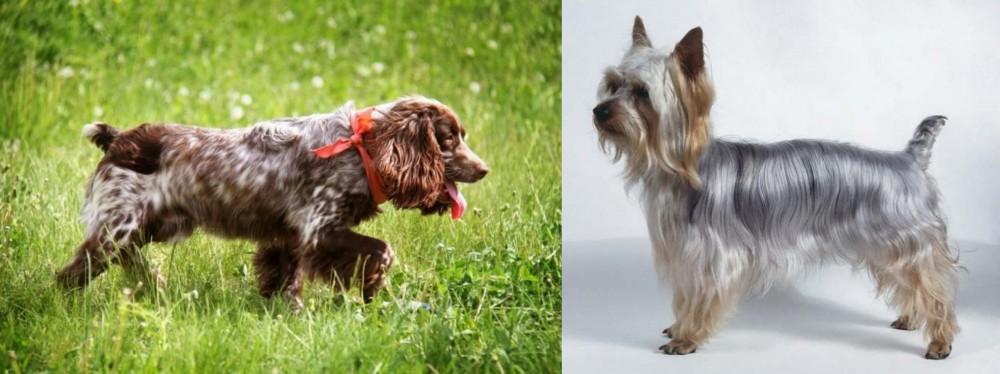 Russian Spaniel is originated from Russia but Silky Terrier is originated from Australia. Russian Spaniel may grow 19 cm / 8 inches higher than Silky Terrier. Russian Spaniel may weigh 11 kg / 25 pounds more than Silky Terrier. Both Russian Spaniel and Silky Terrier has same life span. Russian Spaniel may have more litter size than Silky Terrier. Both Russian Spaniel and Silky Terrier requires Moderate Maintenance.
Russian Spaniel is originated from Russia but Silky Terrier is originated from Australia. Russian Spaniel may grow 19 cm / 8 inches higher than Silky Terrier. Russian Spaniel may weigh 11 kg / 25 pounds more than Silky Terrier. Both Russian Spaniel and Silky Terrier has same life span. Russian Spaniel may have more litter size than Silky Terrier. Both Russian Spaniel and Silky Terrier requires Moderate Maintenance.
 The Russian Spaniel is a gun dog which has originated from the English Cocker Spaniel and the English Springer Spaniel. Today while he is a gun dog he is more of a companion dog.
The Russian Spaniel is a gun dog which has originated from the English Cocker Spaniel and the English Springer Spaniel. Today while he is a gun dog he is more of a companion dog.
The Russian Spaniel has been spoken about since 1891. Different Spaniel breeds were imported to Russia to be used for hunting but some of the smaller spaniels weren't suited to the weather conditions.
At the beginning of the 20th century, breeding programs got underway for longer legged spaniels, and by the late 1930's there were a variety of different spaniels in Moscow.
After World War II, more purposeful breeding got underway and this led to the the Russian Spaniel standard in 1951. The popularity of the dog has increased and in 2002 the Russian Spaniel Club was set up in the United States. The dog isn’t recognised by any major kennel clubs.
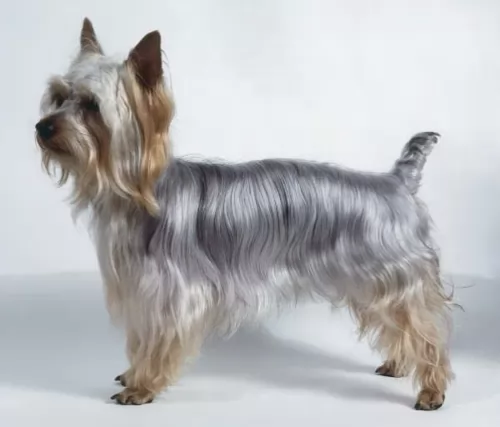 It is the Yorkshire Terrier and the Australian Terrier which are the ancestors of the Australian Silky Terrier. This is by no means a new dog breed. It is believed that the breed came into existence at the end of the 19th century.
It is the Yorkshire Terrier and the Australian Terrier which are the ancestors of the Australian Silky Terrier. This is by no means a new dog breed. It is believed that the breed came into existence at the end of the 19th century.
The dog’s purpose is to be a companion. This little canine wasn’t always known as the Silky Terrier, but in 1955 the name became officially Silky Terrier.
The breed is also recognized by the Australia National Kennel Council in the Toy Group. In fact the breed is recognised by a number of the major kennel clubs as well as the Fédération Cynologique Internationale.
 The attractive little Russian Spaniel stands at 38 – 45cm in height ad weighs between 9 and 16kg. He is such a sturdy little dog too, looking very similar to the English Cocker Spaniel.
The attractive little Russian Spaniel stands at 38 – 45cm in height ad weighs between 9 and 16kg. He is such a sturdy little dog too, looking very similar to the English Cocker Spaniel.
The coat is short and silky with quite a bit of feathering around the legs and ears. Colors of the coat can be anything from reddish brown and white with freckles to black and white with freckles.
Aside from the Russian Spaniels' hunting abilities, they make great family pets and are playful with children.They’re devoted to their human families and become particularly attached to one person in the family.
Such devotion leads them to being a bit cool around strangers, not liking anyone unfamiliar to get too close to any of his family members.
He is intelligent and can be easily trained to obey simple commands such as sit, stay, lie down and come.
The Russian Spaniel can be happy in the suburbs, on a farm or in the city so long as he gets lots of attention and enough exercise.
 This is a small dog breed, standing at just 21 to 26cm in height and weighing in the region of 4 to 5kg. He may be a toy dog, but he is robust and athletic.
This is a small dog breed, standing at just 21 to 26cm in height and weighing in the region of 4 to 5kg. He may be a toy dog, but he is robust and athletic.
The ears of the Silky are small and erect with a lot of silky hair that hangs down and the tail is preferably docked and held high.
His coat is eye-catching – straight, long, silky and shiny. If it is left unclipped, it will reach the floor. The colour of the coat is a tan and silvery grey.
The temperament of any dog is affected by things such as heredity, upbringing and the training and socialization he receives.
Small he may be, but the Silky Terrier can benefit from training as he is feisty and strong willed.
He is energetic and always ready for action. He is ready to come bounding after you and join his human family for any action they’re into. He is playful, bold, loyal, tenacious, independent, social and lively and he makes a good playmate for children.
He might tend to be a bit snappy and aggressive towards other dogs. He is also great as a watchdog, barking and alerting you to strangers.
 The Russian Spaniel is such an energetic, dog, full of life ad with the joys of being alive.
The Russian Spaniel is such an energetic, dog, full of life ad with the joys of being alive.
Although he was a gun dog, today he is loved for his companionship. He makes a splendid family pet and loves to be involved with the games of children.
He is easy-going and social, and just wants to spend as much time as he can with his human family. Give him all the love you have and you'll see his tail never stops wagging.
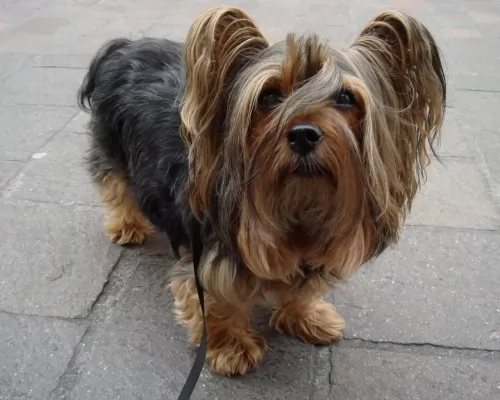 The silky terrier is a good choice for those who want a smallish dog but one which is robust and adventurous.
The silky terrier is a good choice for those who want a smallish dog but one which is robust and adventurous.
Your Silky is a loyal dog who loves spending time with his human family, wanting their companionship.
He will need to be physically and mentally stimulated as he is bright and intelligent. He can adapt to life in the city or the countryside but will need to be well exercised wherever he is.
 With very few health problems, the feisty Russian Spaniel can get to 12-14 years of age. Nonetheless, there are always some of the more common health issues to look out for.
With very few health problems, the feisty Russian Spaniel can get to 12-14 years of age. Nonetheless, there are always some of the more common health issues to look out for.
Russian Spaniels are prone to developing ear infections. Ear infections can be terribly frustrating for a dog and they are quite difficult to clear up. It is advised that dog owners use ear cleaners before infection sets in. The vet can advise you on this as you have to be careful not to damage the inside of the ear.
Itchy skin can be another terrible frustration for a dog. Allergies often cause terrible itching, and your dog will go mad trying to gnaw and bite at the itch. Finding the specific cause of a skin allergy can be very challenging. Blood tests might be required. It is imperative to feed your dog some raw meat occasionally to avoid these terrible skin infections.
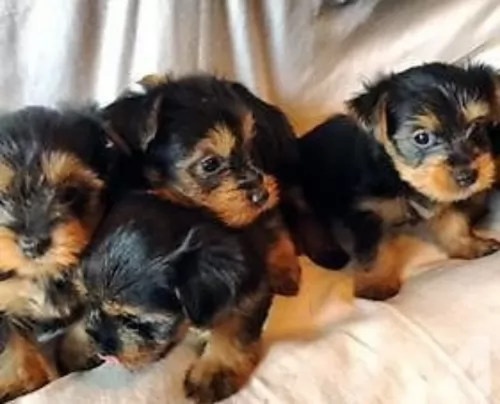 Just like most other dogs, the Silky Terrier isn’t likely to get sick easily, but he can still succumb to any one of the dog illnesses there are.
Just like most other dogs, the Silky Terrier isn’t likely to get sick easily, but he can still succumb to any one of the dog illnesses there are.
This is when your pet isn’t able to regulate blood sugar levels. Your dog will be drinking a lot more water than usual and also be urinating more often. The vet will explain to you a special diet for your pet and how the disease can be controlled with insulin.
This is a disease seen more often in smaller dogs like the Silky. It is caused by an obstruction in the airway and symptoms can include labored breathing and coughing. Your dog will need to be treated with anti-biotics and possibly surgery.
 This dog was raised to be a gun dog, and is used to having plenty of exercise. Most imperative for him will be a couple of walks each day plus lots of chase-the-ball games. These dogs just never seem to get tired as they are playful and will never let the chance of a game pass them by.
This dog was raised to be a gun dog, and is used to having plenty of exercise. Most imperative for him will be a couple of walks each day plus lots of chase-the-ball games. These dogs just never seem to get tired as they are playful and will never let the chance of a game pass them by.
Spaniel ears require quite a bit of upkeep as the hair can become extremely matted, forming balls of knotted hair. The inside of the ears must be constantly checked for infection. The spaniel’s coat will need to be brushed regularly and he can even go to the groomers and get a short Spaniel cut.
Contribute to your pet’s good health by providing him with top notch food. A good nutritious diet for the Russian Spaniel will give your dog less of a chance to get sick. Always go for the best quality commercially manufactured dog foods.
To provide your dog with just a bit of variety in his diet, some home-made food added into the dry kibble from time to time will delight your pet. No need to make preparing the food a huge issue either. Boil brown rice and chicken in a pot and add in sweet potatoes, carrots and spinach. Chop all this up, and as a treat, add smaller portions of it into the dry kibble.To avoid skin infections, try to include some raw meat into his diet occasionally.
Never leave your pet without a constant source of fresh, cool water
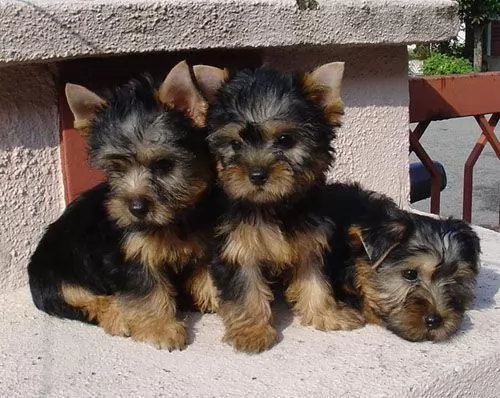 You can imagine that with that silky hair, you’re going to have to be brushing your furry friend quite a bit. It’s such soft, silky hair that it easily picks up burrs and gets matted. You may want to get your pet to a professional groomer to have the hair cut. As you brush him, check for any unusual lumps and keep an eye on his skin.
You can imagine that with that silky hair, you’re going to have to be brushing your furry friend quite a bit. It’s such soft, silky hair that it easily picks up burrs and gets matted. You may want to get your pet to a professional groomer to have the hair cut. As you brush him, check for any unusual lumps and keep an eye on his skin.
Check your pet’s teeth. Bad teeth can cause bacteria that can affect every part of your dog’s body. Check inside his ears for redness and check his eyes that there is no discharge. Trim the nails. If you don’t have the time or the inclination to do all these things for him, make an appointment with the professional pet groomers who will do it for you.
The Silky Terrier will need quality food if you want him to enjoy a long, healthy life. Its always a good idea to have some of the top quality commercially manufactured dog foods with you for convenience. If you want to give him the best there is, some home-made food will be a good choice, if you keep it simple.
Boiled chicken, brown rice or pasta and spinach, sweet potatoes and carrots are a healthy choice for your pet – plain and simple without any exotic spices that could upset his stomach. Your dog will lap it up and you will see how he loves it. Chop the home-made food up and add some of it into his dry kibble as a treat twice a week.